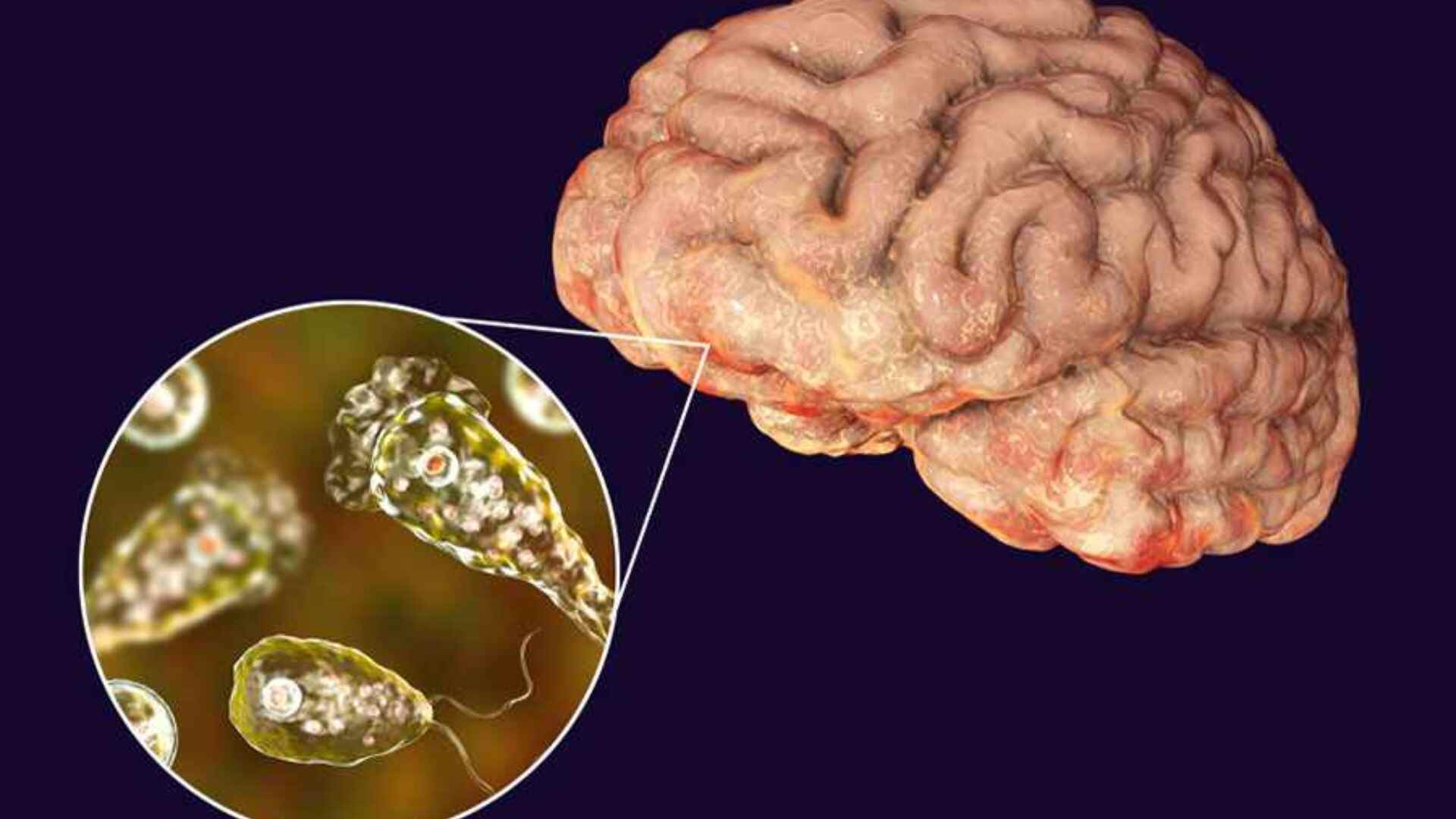The brain-eating amoeba, scientifically known as “Naegleria fowleri”, is a rare but deadly microorganism that can cause a severe and often fatal infection called primary amoebic meningoencephalitis (PAM). This single-celled organism thrives in warm freshwater environments such as lakes, rivers, and hot springs.
How Does the Brain-Eating Amoeba Infect Humans?
The brain-eating amoeba typically enters the human body through the nose, often during activities like swimming, diving, or water sports where water is forced into the nasal cavity. From there, the amoeba travels up the olfactory nerve and into the brain, where it begins to destroy brain tissue.
Importantly, the infection cannot be spread from person to person, and swallowing contaminated water does not cause infection. The amoeba only poses a risk when it enters through the nose.
Early Signs and Symptoms of PAM
The early symptoms of PAM can be easily mistaken for a common viral illness, making early diagnosis challenging. These initial symptoms may include:
– Headache
– Fever
– Nausea
– Vomiting
As the infection progresses, more severe symptoms may develop, such as:
– Stiff neck
– Confusion
– Lack of attention
– Loss of balance
– Seizures
– Hallucinations
– Coma
The disease progresses rapidly, often resulting in death within days of the onset of symptoms. Prompt medical attention is crucial, but even with treatment, the prognosis is typically poor.
Prevention Tips
- Avoid swimming, diving, or participating in water sports in warm freshwater bodies like lakes, rivers, and hot springs.
- If engaging in water activities, try to keep your head above the water and use nose clips to prevent water from entering the nose.
- Ensure proper chlorination and maintenance of swimming pools, hot tubs, and other recreational water sources.
- Do not use untreated tap water for nasal irrigation or rinsing the nose, such as with a neti pot. Use only distilled, sterile, or properly filtered water.
- Supervise children closely during water activities and teach them to avoid getting water in their noses.
While Naegleria fowleri infections are extremely rare, the consequences can be devastating. By taking simple precautions and seeking prompt medical attention for any concerning symptoms, individuals can significantly reduce the risk of this deadly brain-eating amoeba.























